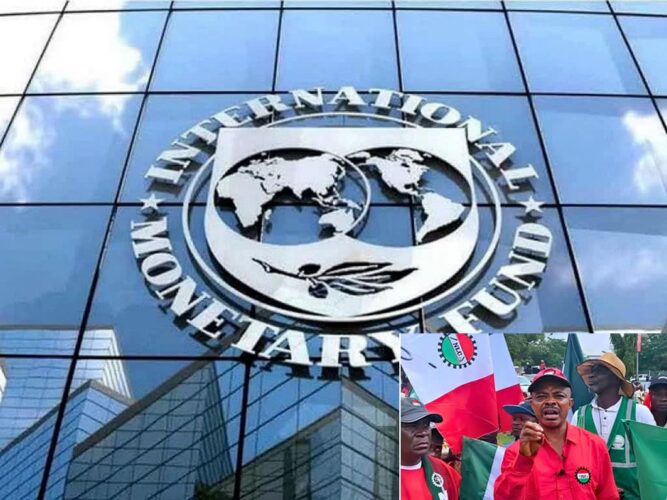The Nigeria Labour Congress (NLC) has criticized the International Monetary Fund (IMF) for denying its role in advising the Nigerian government to eliminate petrol subsidies. The removal of these subsidies by President Bola Tinubu in May 2023 has led to a significant increase in the price of Premium Motor Spirit, with costs rising from N175 per litre to between N1,000 and N1,200 in Lagos and reaching N1,300 in northern states. This subsidy removal has contributed to rising inflation and increased living costs, sparking widespread criticism.
In a statement on Sunday, NLC President Joe Ajaaero argued that the IMF’s recommendations have exacerbated socioeconomic challenges and stagnation in Nigeria. This came after Abebe Selassie, the IMF’s African Region Director, described the subsidy removal as a domestic decision during a press conference at the IMF and World Bank Annual Meetings in Washington, DC.
Ajaaero stated, “The IMF’s recent statement is evasive, claiming Nigeria’s subsidy removal was a ‘domestic decision’ while overlooking its significant influence on policy-making in developing nations. Despite this denial, the IMF frequently advocates for subsidy cuts for fiscal sustainability, making its disavowal appear insincere in a country that has often adhered to such recommendations.” The NLC expressed growing concern over the IMF's denial, which reflects troubling policies imposed on Nigeria by the IMF and World Bank.
The union remarked, “The IMF appears to be distancing itself from potential backlash related to these policies, but Nigerians are not fooled; we understand the damaging effects of its harmful strategies on Nigeria and Africa.” They also criticized the IMF for downplaying the social costs of its policies. While the IMF acknowledges the significant social impacts, it merely suggests that governments should enhance social protections, a strategy that often leaves people dependent on ineffective measures like the RICE initiative.
According to the NLC, the removal of subsidies and rising prices have rendered essential goods unaffordable in Nigeria, while government social safety nets remain insufficient. The disconnect between the IMF's recommendations and the realities in Nigeria underscores a major flaw in the fund’s economic policies. By distancing itself from Nigeria’s subsidy removal, the IMF demonstrates inconsistency in its guidance, advocating for austerity while shirking responsibility for the resulting hardships.
The NLC emphasized that this behavior undermines the IMF’s credibility and raises questions about the sincerity of its economic prescriptions, especially given its historical influence, which often leads to turmoil and hardship. They called for Nigeria and other developing countries to reclaim their economic sovereignty and resist externally imposed policies that disregard local contexts and the needs of the populace.
“The IMF’s denial of involvement in Nigeria’s subsidy removal seems insincere, especially considering its history of recommending similar austerity measures. We hope our economic leaders recognize that when crises arise, the IMF and World Bank will distance themselves, leaving the government to manage the fallout,” the statement read.
The NLC asserted that Nigeria must adopt policies that genuinely address the needs of its citizens by focusing on strategies that promote growth, social welfare, and equity rather than austerity measures that lead to deeper economic troubles and social unrest.
“We urge the World Bank and IMF to stop stifling our nation so we can thrive. They have become a significant challenge for us, and we may soon have to demand their complete withdrawal from Nigeria, as their policies consistently undermine our economy and harm both the people and the nation,” the NLC concluded. They called on the IMF to acknowledge its role in contributing to the hardships faced by Nigerians.
READ ALSO:IMF Clarifies: Subsidy Removal Was a Domestic Decision









